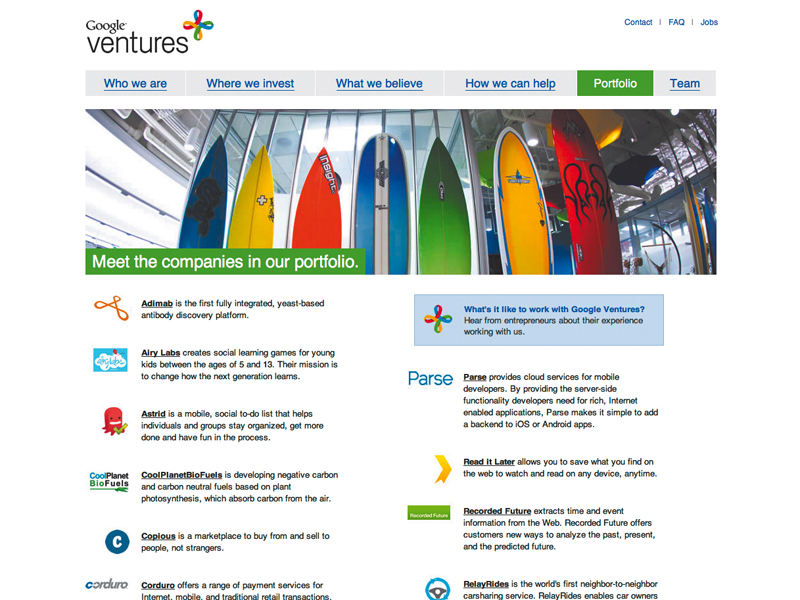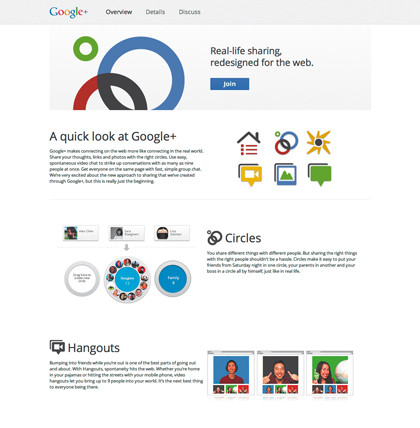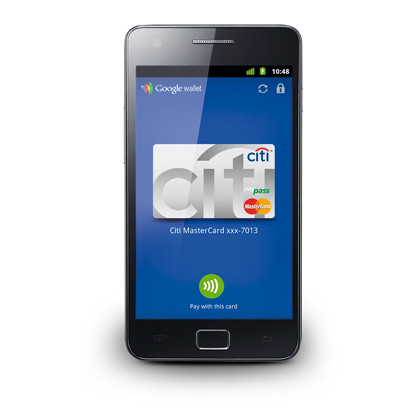
Were Google a horse, it would be well on its way to the glue factory by now. Android revenues are still tiny, the company's social experiments haven't stuck and it has a long track record of buying companies and then realising it doesn't know what to do with them.
Even its core business, search, doesn't look too great - it's becoming stuffed with spam as many of us migrate to social networks, and Facebook attempts to annex the entire internet. That's the received wisdom anyway, but predictions of Google's demise may prove to be premature.
The company is facing challenges, certainly, but Google remains one of the world's biggest, richest, smartest and most innovative companies, and it's placing big bets to ensure it's as relevant in 2020 as it is today.
The key to Google's strategy is that it doesn't really have a formal strategy. As technology analysis firm Gartner explains, "Google encourages innovation through emergence. It doesn't have a strategic masterplan with investors or clients, which for some is a source of confusion or frustration. Applications, services and products that succeed - whether in revenue generation or serving as irritants and disrupters to its rivals - receive more resources.
"The resulting mesh of products is exceptionally strong in some places, but loose and ragged in others. Google's strategy favours rapid iteration, experimentation and fluidity over dogged pursuit of a specific set of long-term objectives."
Right here, right now
That doesn't mean Google doesn't think long term, though. Take Android, for example. Its mission is to replace every single feature phone with a smartphone, and that strategy appears to be working across the mobile market, with Android devices managing the difficult trick of competing at both the value and premium ends of the market.
As Daniel Ashdown, Research Analyst with Juniper Research explains: "Android is currently Apple's main rival in the mobile operating system space. The open source nature of Android makes it ideal for vendors wanting to get their smartphone to market at a low cost, but [it] has the features needed for premium smartphones as well."
Get daily insight, inspiration and deals in your inbox
Sign up for breaking news, reviews, opinion, top tech deals, and more.
Per-revenue income from Android devices is tiny now, but when we're all running smartphones, those devices will be running Google search, displaying Google ads and generating Google income.
Juniper Research's Principal Analyst Dr Windsor Holden says, "Our latest forecasts suggest that the mobile advertising market worldwide will be worth $11.5billion per annum by 2015." According to Google's own figures, 96 per cent of its revenues currently come from the combination of display advertising and search ads, so it's no wonder that the firm continues to invest in these two key products.
Tools like Display Ad Builder make it easier for firms to move from search to display advertising, while the acquisition of AdMob in 2009 happened just in time for the smartphone-fuelled explosion in mobile advertising.
As Gartner puts it, "While Google's success faces [threats], the attention it maintains on its core advertising continues to deliver the benefit of growth and sustainable advantage from which Google has the opportunity to expand."
Taking the tablets
Despite its success on phones, Android isn't doing so well in tablets, where even the most generous estimates admit that Apple is giving everyone else a kicking - and in 2012, Windows 8 will bring Microsoft's considerable muscle to the market. If Google can't compete now, what chance does it have in a Windows 8 world?
Daniel Ashdown remains optimistic. "The potential size of the market for smartphones and tablets means that there is a lot of space for a number of vendors to succeed," he told PC Plus. "While Apple is dominant currently and its sales will continue to grow, it's inevitably going to lose market share due to a broadening - in terms of price point, which suits Android - of these markets." In other words, the more devices Android runs on, the more of the growing tablet market it will get.
Ashdown believes that Microsoft is only a very distant danger. "Nokia's move to Windows Phone 7 isn't a massive threat to Android because it is one vendor, and many other vendors are spreading devices across Microsoft's and Google's OSes - with a weighting towards Android. With regards to Windows 8, at the moment the tablet is seen as a mobile device, not a PC, and the mobile vendors are dominating that market at the moment."
"Microsoft will make a big impact, but we think Android will become the leading player in the tablet OS and smartphone OS market by 2015," he adds.
In July, Nielsen research found that some 40 per cent of mobile phone users own smartphones, and smartphones now dominate sales of new handsets too: 55 per cent of people who bought a handset in March, April or May bought a smartphone rather than a basic feature phone, and analysis firm iSuppli predicts that in the US, smartphones will outnumber feature phones by 2015.
Google is currently activating half a million Android devices every day, which sounds impressive until you discover that there are 5.3 billion mobile phones worldwide. The potential for growth - and for Google - is enormous.
Nudge, nudge
Android is a classic Google play: if the world isn't moving quickly enough in Google's direction, Google will give the world a nudge. The Chrome web browser came from a similar perspective: Google felt that browser manufacturers could do a better job of supporting web applications and HTML5, so it built a browser to spur them into action.
Chrome OS is designed to encourage adoption of cloud computing, where Google is a significant player, and the new Google Wallet, which uses near field communication (NFC) technology to deliver wireless mobile payments in the US, is an attempt by Google to kick-start a market from which it hopes to make a lot of money.
As Google's executive chairman Eric Schmidt told delegates at this year's Mobile World Congress, payments could be an enormous opportunity for the firm. "I'm walking down the street and I need pants.
"My phone has an NFC chip. It knows where I am. It tells me about two stores, one to the left with a 20 per cent discount and one to the right with a 30 per cent discount. It's programmed to know that I'm a cheapskate, so it points me to the right and the store knows what pants [trousers] I want. You don't think this is going to work? Trust me, this is consumerism."
It's also something that ties in nicely with another Google product, Google Offers, which is being beefed up with the acquisition of Groupon-style special offers websites. At the time of writing, Google had just acquired the German deals site Daily Deal.
Google isn't the only firm interested in smartphone-assisted shopping. As Windsor Holden recalls, "this is pretty much the line that Paul Jacobs was spinning at the recent Qualcomm EMEA event. The phrase he used was the handset as a 'digital sixth sense' - that the handset will essentially be facilitating the flow of contextualised, localised information."
Could this really work? "Considering Google's presence across the value chain, it is - in theory at least - a credible scenario," Holden says. "In terms of actually effecting that scenario, the primary barriers are (a) ensuring that the various retailers are on board and therefore ready to ping trouser-related information, and (b) overcoming any residual customer concerns about intrusion and payment."
Playing a long game

Rather than insist everyone uses its own Google Checkout payment processing service, Google is happy to team up with existing payment systems. So while it doesn't get a percentage of every transaction, it gets something that may be even more valuable: data.
With Google Wallet, Google gets to know not just what you're interested in, but what you actually spend money on. While Google Wallet doesn't get your actual transaction details, it still knows where you were and how much you spent.
By combining that data with deals, social networking, geolocation, Nectar-style loyalty programmes and specialised services like the Zagat restaurant guides, which Google acquired in September, Google has a very powerful platform for location-based, personalised advertising.
The Google+ plus-one icon already appears on display adverts so you can share them with the people in your Google+ circles, and the same feature is coming to AdSense for mobile devices too. But Google+ is about more than just letting your contacts know you like the odd banner ad. It's also about social TV, which many pundits predict could be the next big thing in streaming media, and, inevitably, it's about advertising.
If you've ever joined in live Twitter conversations during football matches, Question Time or Britain's Got Talent, you'll know how much fun simultaneous viewing and posting with your friends can be. With Google+ Hangouts, Google is hoping to deliver something even better.
Hangouts are one of the core Google+ features, delivering group video chat both on desktop PCs and on Android devices. The new Hangouts API, which was added in September, makes it possible for developers to create social TV applications that pull and share content from sites like YouTube and Vimeo with groups of people. If you pause the video, it pauses for everyone; if you rewind it or skip to a different clip, then everyone else's video rewinds or moves to the next clip.
If Hangouts prove popular, it will mean yet more data for Google to crunch and even more opportunities to deliver targeted advertising.
Mobile money

As Eric Schmidt wrote in the Harvard Business Review earlier this year, Google's strategy is "all about mobile". In 2009, half a billion people used mobile devices to access the internet; within five years, that figure is expected to double as the smartphone overtakes the PC as the primary device people use to get online.
That opens up enormous opportunities for Google. As Eric Schmidt explains, the smartphone makes it possible "to deliver personalised information about where you are, what you could do there right now, and so forth - and to deliver such a service at scale." To make that happen, Schmidt says, Google needs to do "some serious spadework on three fronts".
Those are improving the mobile networks we use to connect to the internet, with 8-10mb connections being the norm, developing mobile money, which we're already seeing in the form of Google Wallet, and getting smartphones into the developing world.
"We envision literally a billion people getting inexpensive, browser-based touchscreen phones over the next few years," Schmidt says. "Can you imagine how this will change their awareness of local and global information and their notion of education?" Can you imagine how many ads Google will show them?